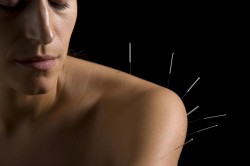Surprising Ways to Help a Loved One During Recovery from Alcohol Addiction
If someone you know is facing alcohol recovery, they have done some good work, but they have more ahead of them and they need your support.
A person who has sought treatment for alcohol abuse is trying to break that cycle of addiction and you have a valuable role to play. If you are looking for more ways to support someone in recovery, contact Disorders.org at 888-647-0051 (Who Answers?) and speak with someone who can provide resources today.
Sleep
One side effect of addiction is its effect on sleep. It’s not surprising that sleep deprivation is often used as torture because lack of sleep takes a terrible toll on the human body. Treatment and detox can both be impeded by sleep disturbance, but recovery should function as an ideal time to regulate your sleep schedule and to get in the habit of sleeping at least eight hours per night.
According to an article titled “Neurocognitive Consequences of Sleep,” the following cognitive performance effects are caused by sleep deprivation:
- Involuntary microsleeps (momentary episodes of sleep that last anywhere from a fraction of a second to 30 seconds)
- Performance that requires extreme levels of attention becomes unstable with increased errors
- Intellectual slowing occurs in tasks where you set the pace, while time pressure increases thinking errors
- Response time slows
- Both short-term recall and working memory performances decline
- Reduced learning of cognitive tasks
- Performance requiring different thinking worsens
- Increased effort is channeled into compensating in order to remain behaviorally effective
- Tasks may begin well, but performance worsens as task length increases
- There is growing neglect of activities judged to be nonessential
In addition to the problems sleep deprivation presents for thinking, there are emotional effects as well. Scientific studies verify sleep deprivation causes sufferers to feel more irritable, angry, hostile, and depressed. Furthermore, loss of sleep leads to emotional reactivity—responding negatively when something doesn’t go well.
As your loved one faces recovery, they need to be as emotionally stable as possible and their thinking needs to be at its best. No, you can’t put your friend or family member to sleep. You won’t be rocking them at night. But, you can help them to focus on their sleep hygiene. Avoid emotionally difficult conversations just before bed time. Perhaps, buy a white noise machine, new sheets, or a sleep mask for the recovering addict in your life. Also, invite them out for active events. The more exercise they get during the day, the better they will rest at night.
Acupuncture

Acupuncture can help to restore one’s natural energy while recovering from alcohol addiction.
The most well-known alternative medicine treatment, acupuncture has been an important therapy in Eastern countries for thousands of years. More recently, it has gained popularity and acceptance in western countries. As mentioned in the article “A Possible Mechanism Underlying the Effectiveness of Acupuncture in the Treatment of Drug Addiction”: “Acupuncture involves the stimulation of specific points on the skin, usually by the insertion of metallic needles; however, related techniques such as manual, electrical or laser stimulation of acupuncture points are also often summarized under this term.”
Acupuncture aims to restore balance of the body’s yin and yang. Practitioners believe energy—known as chi—streams through the body along pathways called meridians and any obstruction of this energy causes illness. Your natural energy can be obstructed for any number of things but substance abuse is certainly something that obstructs this energy. Traditional acupuncture treatment unblocks the energy, restoring the flow of chi.
According to the Pacific College of Oriental Medicine, Dr. H.L. Wen stumbled upon electroacupuncture as an addiction treatment method in the 1970s. “Wen was experimenting with electroacupuncture for pre-operative anesthesia on patients addicted to opiates, when he reported that the electroacupuncture did more than act as anesthesia…it also dramatically decreased the patients’ withdrawal symptoms. Ever since then, acupuncture has continued to be developed as an aid for a variety of addictions, including alcohol.”
Rehabilitation programs are using acupuncture more frequently as a single component of a larger treatment program. Given the success patients have had with it, continuing it after treatment has ended is a good way to support recovery and provide a continuity. Given all of the changes that happen transitioning from treatment back to recovery, it is good to have some things remain the same.
Consider purchasing a few treatments for your loved one or offer to accompany them for their acupuncture. You can even do something as simple as giving them a ride and waiting patiently while they enjoy the procedure. Knowing that you support the practice will help them to continue this act of self-care.
https://www.disorders.org/alcoholism/finding-the-best-treatment-for-alcohol-use-disorder/
Laughter
One way to retrain the brain to deal with the highs and lows of dopamine levels associated with drug use is to give the body safe, natural surges of dopamine.
According to experts, laughter provides a natural high that triggers a safe version of the dopamine process triggered by most illicit drugs. As with drugs, when something is perceived as funny, the reward center of the brain is activated, however laughter’s dopamine doesn’t damage the brain. Overtime, the brain will not build up tolerances to laughter’s pleasures either.
In addition, laughter is linked to improved immune functioning, stress relief, increased pain tolerance, improved cardiovascular health, reduced anxiety and improved mood.
Take the time to get together with your loved one and to laugh, See a funny movie. Send them amusing emails. Share stories. Got see some stand-up comedy or improv. Not only will you strengthen your bond, you will both get a healthy surge of dopamine.
For more tips to help you offer the best support you can, call Disorders.org at 888-647-0051 (Who Answers?) .





